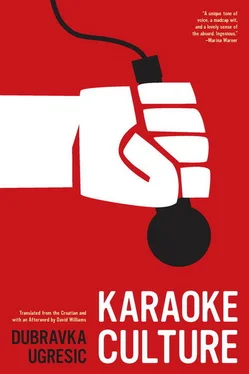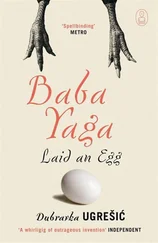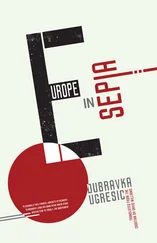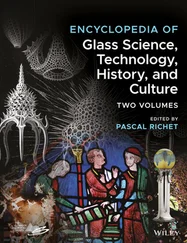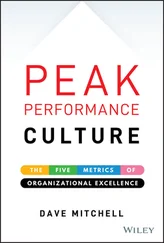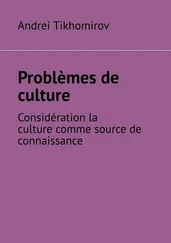Dubravka Ugresic - Karaoke Culture
Здесь есть возможность читать онлайн «Dubravka Ugresic - Karaoke Culture» весь текст электронной книги совершенно бесплатно (целиком полную версию без сокращений). В некоторых случаях можно слушать аудио, скачать через торрент в формате fb2 и присутствует краткое содержание. Год выпуска: 2011, Издательство: Open Letter, Жанр: Публицистика, на английском языке. Описание произведения, (предисловие) а так же отзывы посетителей доступны на портале библиотеки ЛибКат.
- Название:Karaoke Culture
- Автор:
- Издательство:Open Letter
- Жанр:
- Год:2011
- ISBN:нет данных
- Рейтинг книги:4 / 5. Голосов: 1
-
Избранное:Добавить в избранное
- Отзывы:
-
Ваша оценка:
- 80
- 1
- 2
- 3
- 4
- 5
Karaoke Culture: краткое содержание, описание и аннотация
Предлагаем к чтению аннотацию, описание, краткое содержание или предисловие (зависит от того, что написал сам автор книги «Karaoke Culture»). Если вы не нашли необходимую информацию о книге — напишите в комментариях, мы постараемся отыскать её.
Karaoke Culture — читать онлайн бесплатно полную книгу (весь текст) целиком
Ниже представлен текст книги, разбитый по страницам. Система сохранения места последней прочитанной страницы, позволяет с удобством читать онлайн бесплатно книгу «Karaoke Culture», без необходимости каждый раз заново искать на чём Вы остановились. Поставьте закладку, и сможете в любой момент перейти на страницу, на которой закончили чтение.
Интервал:
Закладка:
As a longtime archivist of anonymous human destinies, Boltanski has now put himself in the position of the archived object, an act completely in accord with our time, one in which we all, as if in a kind of pact with the devil, are simultaneously archivist and the archived.
Archive Fever
I first showed symptoms of archive fever in 1989, although at the time I didn’t pick them up. All of sudden I was overcome by a feeling that the world I knew was under threat from a terrible amnesiac tsunami. A rescue project to save symbols of Yugoslav everyday life and popular culture — an idea that was to become the Lexicon of Yugoslav Mythology —was sketched in a document of not more than two or three pages and briefly kept alfoat by the enthusiasm of three people. The common Yugoslav home fell apart barely two years later. When a house is collapsing, normal people look to save life and limb, and rescuing their favorite books is the furthest thing from their minds. But actually, I’m not so sure about that. Warned to take only their most essential belongings, when the air raid signals blared people took the most bizarre things down into the shelters. During the first alarm in Zagreb an old lady admitted to me that during the Second World War she found herself in the basement with an alarm clock in her hand. Why an alarm clock, of all things, was so essential she wasn’t able to explain.
Going abroad was like finding oneself an air raid shelter — one only takes the essentials. Most of all I missed my books, my Zagreb home library. The truth is that new books stuck to me like magnets, as if trying to compensate for the loss. I don’t exclude the possibility that I made Amsterdam my home just so I could give a home to my books, to both the new and the old, which lay in boxes, lonely and neglected in a friend’s Zagreb basement. It was a number of years before I felt able to confront the boxes. During a visit to Zagreb I spent a few days going through them, sorting out the books that I’d one day take to Amsterdam with me. A couple of years later my Zagreb friend offered to pack the books I’d set aside in a combi-van and taxi them to Amsterdam. I planned a welcome reception for their arrival, cleaning up my Amsterdam cellar and having special shelves built. At first I’ll put all the boxes in the cellar I thought, and then slowly, one by one, I’ll take them up to the apartment. I gave up after unpacking the first few boxes. Holding them in my hands again, the books no longer meant what I thought they would mean to me. Their order had been lost forever; their arrangement in my old Zagreb library impossible to reconstruct; their significance lost along with the codes of memory, as if they were written in a dead, undecipherable language. Ten unopened boxes still languish in my Amsterdam cellar.
In the meantime the Lexicon of Yugoslav Mythology has been published as a book and is apparently even in its third edition. A handful of enterprising people copied the online corpus I had begun collecting with my Amsterdam students and gave it a hardcover. These memory fragments of the former Yugoslav everyday assembled by a group of anonymous young contributors don’t set my heart aflutter. The authenticity of the impulse has petered out. Because things that I was sure would disappear forever (the Internet was not yet in widespread use), today, twenty years later, pop up like jack-in-the-boxes. Everything the ordinary Yugonostalgic heart could ever desire is on YouTube. There are Internet sites loaded with old Yugoslav films and TV series, sites with ethnic jokes from the Yugoslav-era, virtual collections of objects from the Yugoslav everyday, the packaging of pioneering Yugoslav products, exemplars of socialist design. There are new “Yugonostalgic” souvenirs: men’s socks with Tito on them, bottles of wine with Tito’s signature, cookbooks with Tito’s favorite recipes. Memory of the Yugoslav everyday, which just fifteen years ago was an act of political and cultural subversion, is today just a bit of fun; things once considered irreplaceable relics are today cheap souvenirs. An authentic need to reestablish a brutally broken cultural continuity has been transformed into political kitsch and the cultural program of a well-funded NGO.
Serious and historically relevant analyses of the Yugoslav system have yet to appear. Equally lacking are reliable analyses of Yugoslavia’s disintegration. The diligent historians are for the time being maintaining their silence. Tito’s monuments have been destroyed, but a cookbook with his favorite dishes is, it seems, a bestseller. The virtual and physically-existing souvenir industry is broadcasting false signals, offering symbolic and high-speed acknowledgement of an unacknowledged history.
I am from the generation born after the Second World War, experience of which I gleaned directly from my parents and Yugoslav post-war culture, one that in spite of its proclaimed future orientation was actually deeply immersed in the wartime past. I am a witness to the recent “Yugoslav” disintegration and war (the war officially ended fifteen years ago), the change of ideological and political systems, and the collapse of a cultural system. I am a witness to multiple strategies conceived to organize the erasure of the past: the burning of books; the deletion of biographies; the rewriting of school textbooks and official truths; the change of languages, flags, and ideological options; the excavation and burial of bones; the fabrication of history; and the renovation and renaming of an entire landscape. I am also a witness to the overnight disappearance of an untold number of people.
In my life experience I also know something of the rapid replacement of technology (and it seems that technology shapes our consciousness far more than ideology). With enviable elasticity I replaced the ink pot and quill with a typewriter, and a typewriter with a computer. I also possess intergalactic experience — from the Gutenberg galaxy I’ve moved, like or it not, into a digital one. Since achieving mass penetration (and this happened barely fifteen years ago!), the Internet has turned everything we knew on its head. And here an important question arises, one that I suspect has no quick answer. Would Marcel Proust have written In Search of Lost Time if he had had a Madeleine cookie on the computer screen in front of him?
Memory Stick
And here we are, in a time in which a Kamchatka pensioner doing the crossword can check the Internet for the image of a cookie that made a French writer famous. We live in a time in which the bizarre collectors of Vaginov’s novel, the founders of the “Society for the Collection of Trivia,” should be acknowledged as visionaries. A quick Internet search for unusual museums proves the point: Museum of Toast Portraits of Famous People, World Carrot Museum, Virtual Museum of Scams and Frauds, Museum of Odd Socks, Gallery of Obscure Things, Museum of Funeral History, The Trash Museum, Virtual Museum of Cigar Box Art, Zymoglyphic Museum, Banana Museum, Pretzel Museum, Museum of Toilets, Museum of Modern Madness. . Theorists of popular culture would no doubt claim that virtual museums are an ironic subversion of the cultural canon, for as we all know, the institution of the museum is there to keep strict watch on the canonical order. But even this is a moot point, because we live in a time in which museum architecture has turned the traditional concept of the museum on its head, a time in which a museum’s architecture is inevitably far more important than its contents. Today, museums are rarely built to house art, rather, they are, in and of themselves, works of art. The hypothetical notion — those with art will also need a museum — has today become — those with a museum will get art.
We live in a time of archive fever. We compete with our media gods and goddesses. There we are, walking through the world with our memory sticks around our necks, each of us with our own homepage, each of us with an archive stored on the web. There are also those who wear their archives on their own skin, in the form of tattoos. And we are everywhere: our fingerprints left on scanners at border crossings, in medical clinics and files, on all kinds of cards confirming our membership in different organizations — from fitness clubs to the Subscribers for Posthumous Assistance. We haul our invisible freight through the world, our documents, our power and phone bills, our address books, our bank and business cards. We walk through the world well networked and connected, with MySpace and Facebook, phone numbers stored in mobile phones, family albums stored on the web, with souvenirs and photos of our children in the windows of our apartments (a little Dutch quirk). All of these are our archives. They’re how we assure ourselves of eternity. And the more voluminous the archive that trails us, the less of ourselves there is. Yet we head off into battle with renewed energy: with camcorders and digital cameras, recording our voices, our thoughts, our everyday lives down to the minutest of details. In this private big brother show, this public big brother show, we record everything: the hypothetical moment of conception, the embryo, the baby in utero, birth, first steps, first words, first birthdays. And the richer our archives become, the less of ourselves there seems to be. We don’t communicate with each other. None of us has the patience for others’ photo albums, holiday pictures, or videotapes, which long went out the window in any case. Oh so modern, we put things on YouTube so anyone can gawk at them. We used to send out ghostly signals of our existence, and now we make fireworks out of our lives. We enjoy the orgy of being, twittering, buying new toys, iPhones and iPads, and all the while our hunger just grows and grows. We wear memory sticks around our necks, having of course first made copies. The memory stick is our celestial sarcophagus, our soul, our capsule, our soul in a capsule. One day we will be catapulted into the Great Archive, where someone will find and open us like a black box.
Читать дальшеИнтервал:
Закладка:
Похожие книги на «Karaoke Culture»
Представляем Вашему вниманию похожие книги на «Karaoke Culture» списком для выбора. Мы отобрали схожую по названию и смыслу литературу в надежде предоставить читателям больше вариантов отыскать новые, интересные, ещё непрочитанные произведения.
Обсуждение, отзывы о книге «Karaoke Culture» и просто собственные мнения читателей. Оставьте ваши комментарии, напишите, что Вы думаете о произведении, его смысле или главных героях. Укажите что конкретно понравилось, а что нет, и почему Вы так считаете.
